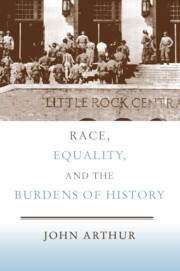Introduction
Published online by Cambridge University Press: 03 December 2009
Summary
slavery, racial segregation, and racism left a large and lasting legacy. They scarred American history, and they continue to frame our country's self-understanding. Only in the last half of the twentieth century did Americans, awakened to the enormity of the injustices of racial oppression, undertake serious reform of their political and social institutions. At no point in that long process did changes come easily or without controversy and, more often than not, violence. There have been changes, but it is far from agreed how much change has taken place, how far we have left to go, or what policies should now be pursued.
The organizing theme of this book is racism: its nature, consequences, and cures. But racism cannot be considered in isolation, and so each of the first four chapters addresses theoretical issues that are often in the background of discussions of racism. These include: the nature of racism and of institutional racism, the ideas of social construction and of race itself, the history and nature of slavery, and the meaning and importance of the ideal of racial equality. The last four chapters of this book focus on the problems of race and poverty together with affirmative action, reparations, and other proposals designed to promote racial justice and to reduce the burdens of a racist history. This book concludes with discussions of the importance and the challenges of providing equality of opportunity.
- Type
- Chapter
- Information
- Race, Equality, and the Burdens of History , pp. 1 - 7Publisher: Cambridge University PressPrint publication year: 2007
- 1
- Cited by

